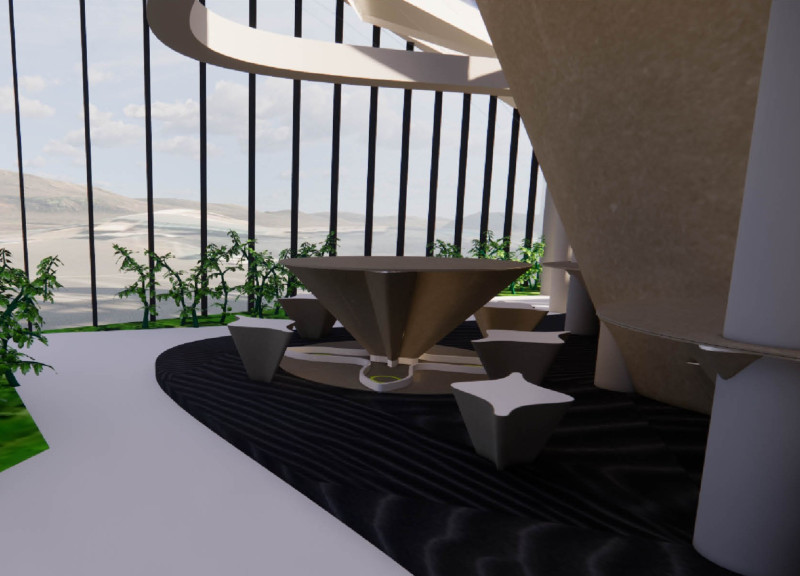5 key facts about this project
The Hverfjall Volcano and Mývatn Nature Baths are located in the scenic Mývatn region of Iceland, where the design harmoniously fits into the stunning volcanic landscape. This space combines leisure and essential services, creating a unique experience for visitors. The concept revolves around the natural topography, and the overall design reflects the shapes and forms found in the surrounding environment.
ARCHITECTURAL FORM AND LAYOUT
The building has a dynamic shape that echoes the hills nearby. The roof's contours mimic the undulations of the terrain, allowing it to blend into the landscape. The layout of the restaurant supports accessibility, featuring a single-level design that promotes easy movement. This streamlined arrangement enriches the visual connection between the spaces and the natural surroundings.
AGRICULTURAL COMPONENT
An interesting feature of the design is the incorporation of agricultural elements within the restaurant. Growing spaces for tomatoes and cucumbers are integrated into the design, both inside and along the edges of the glasshouse. This aspect fosters a connection between visitors and local food production, highlighting sustainability and environmental care.
MATERIALS USED
The structure employs a steel framework, which supports the glasshouse-like appearance and enhances transparency. This choice of material allows the building to adapt to the volcanic context while accommodating the unique geological features of the site. Inside, dark-colored sandstone flooring reflects the tones of surrounding volcanic rocks, creating a unified and grounding atmosphere.
SUSTAINABILITY FOCUS
The design also features a triangulated roof, providing a platform for solar panels. This aspect underscores a commitment to environmental sustainability, minimizing the building's carbon footprint. The roof shape not only serves a practical function but also creates an inviting play of light and shadow within the interior, enhancing the dining experience and encouraging interaction with the landscape.






















































